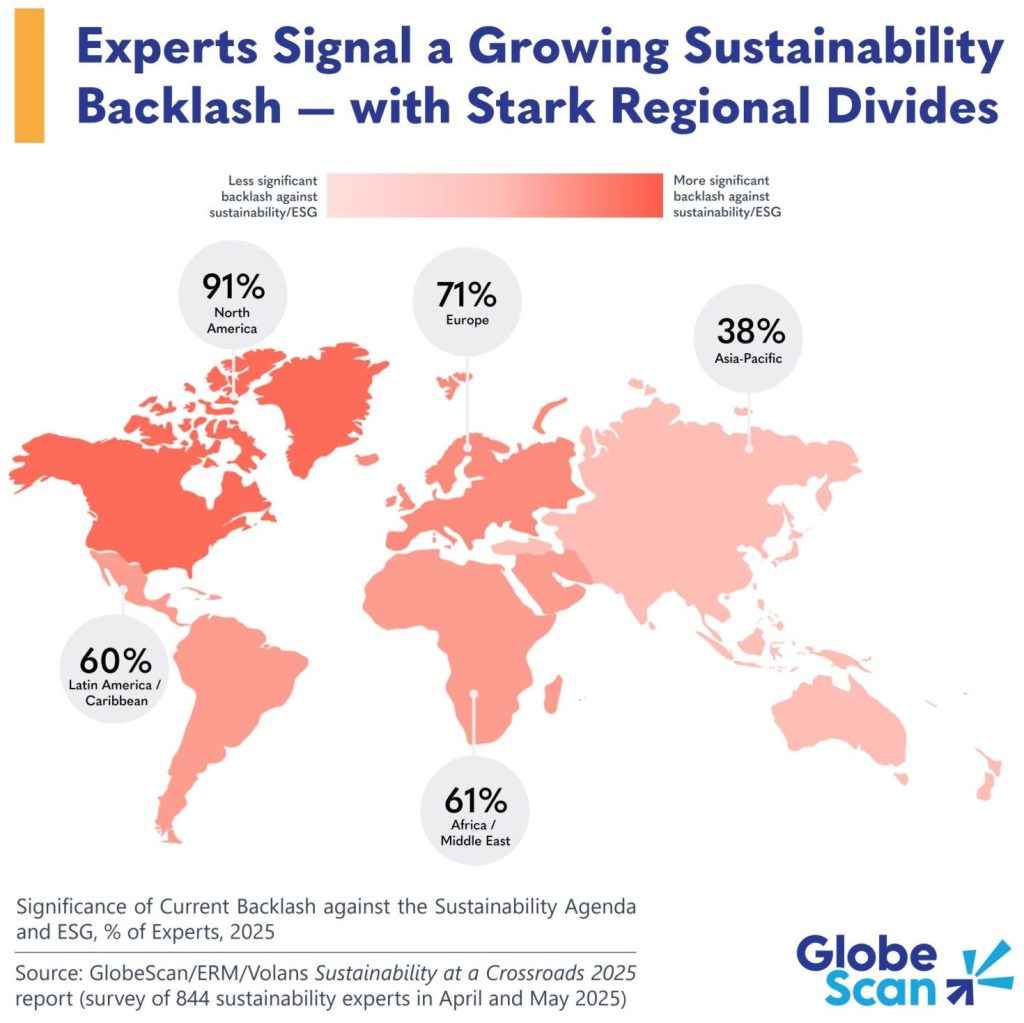7 in 10 experts say backlash against sustainability agenda is intensifying
Professionals in Latin America and the Caribbean are feeling less resistance than those in North America. Read More

- 70 percent of experts say there’s a significant backlash against the sustainability agenda in their country, up 13 percentage points from 2024.
- North America is most polarized, with nine in ten experts reporting significant backlash compared to just 38 percent in Asia-Pacific.
- The uneven perception of this backlash highlights the need for regionally-tailored strategies that reflect local political, economic and cultural dynamics.
If there’s a silver lining to the backlash against sustainability, it’s this: You’re not alone in what you’re seeing and feeling.
New findings from a survey conducted by Trellis data partner GlobeScan, in conjunction with the ERM Sustainability Institute and Volans, reveal a sharp rise in global sustainability professionals’ concern about the backlash against the sustainability agenda and ESG. Globally, seven in 10 experts now say there’s a significant backlash in their country, up 13 percentage points from last year.
This shift is especially pronounced in North America, where more than 90 percent of experts report experiencing significant resistance. In contrast, nearly two-thirds of experts in Asia-Pacific say there is little to no backlash, underscoring the uneven and regionally fragmented nature of the pushback. In Europe, seven in 10 experts believe there is a backlash, while Latin America and the Caribbean (60 percent) and Africa and the Middle East (61 percent) fall in between, reflecting a globally uneven but broadly felt sense of resistance.
What this means
The surge in backlash — particularly in North America and Europe — reflects growing polarization around sustainability. In these more resistant markets, progress will require careful messaging, stronger coalitions and reframing sustainability in ways that resonate with local priorities and issues.
In less-polarized regions, particularly in Asia-Pacific, there are ample opportunities to accelerate impact, scale innovation and demonstrate the value of sustainability as a driver of economic and social resilience.
Based on a survey of 844 sustainability practitioners across 72 countries globally conducted April-May 2025.

Subscribe to Trellis Briefing
Featured Reports

The Premier Event for Sustainable Business Leaders
















